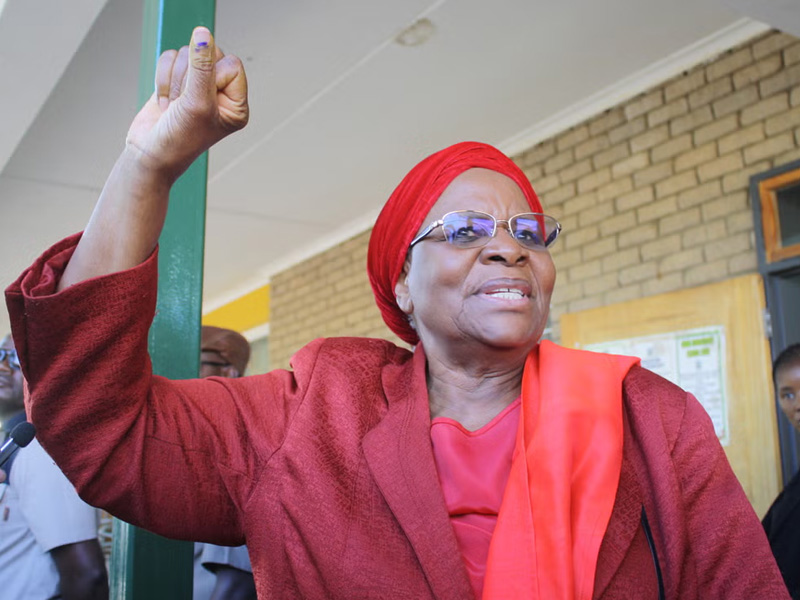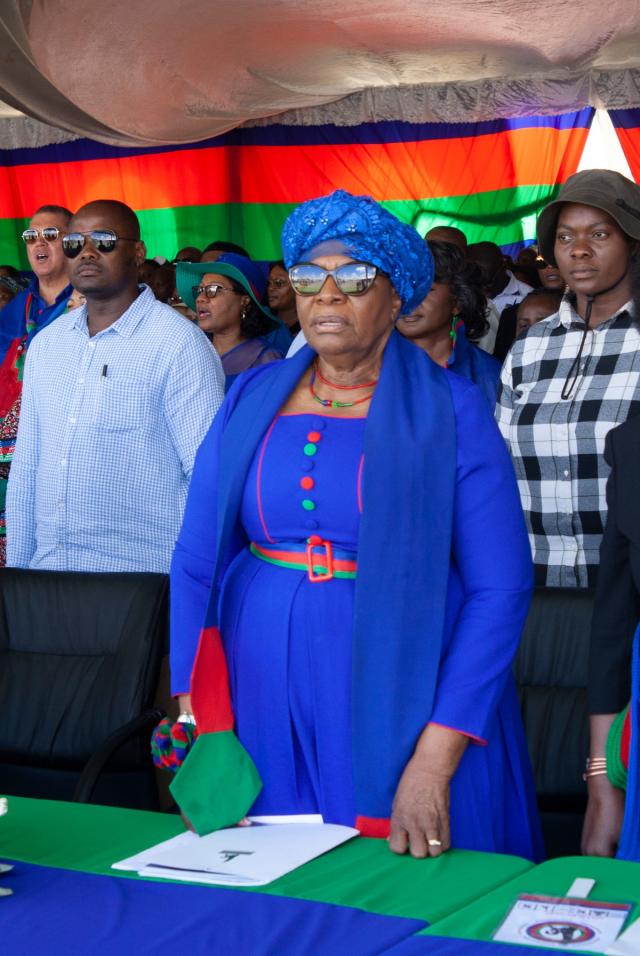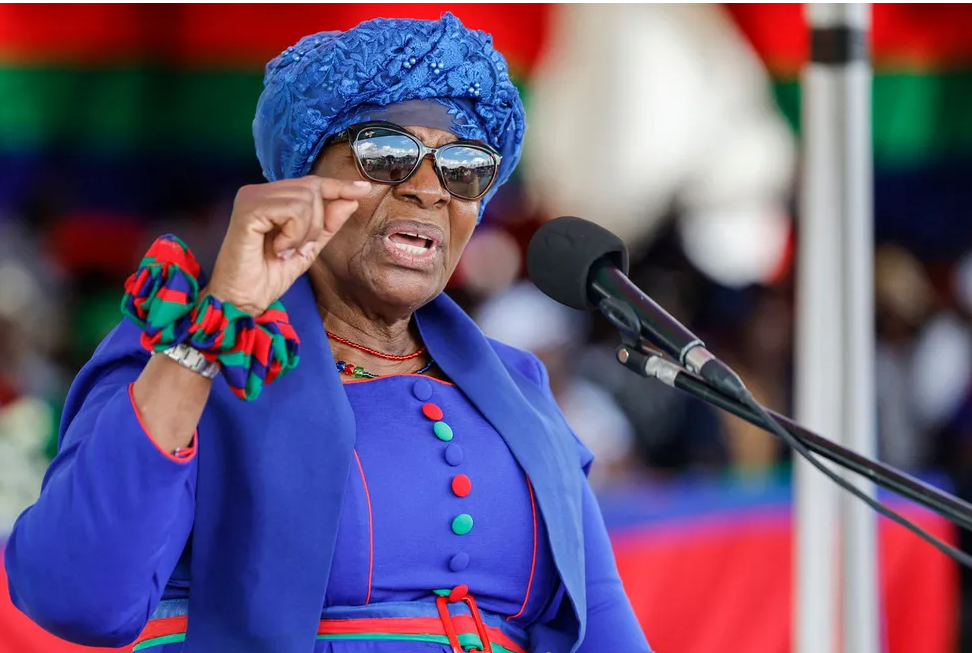By JKNewsMedia
LOGISTICAL CHALLENGES and allegations of voter disenfranchisement marred Namibia’s recent presidential election, culminating in the historic election of Netumbo Nandi-Ndaitwah as the country’s first female president.
Nandi-Ndaitwah, representing the ruling SWAPO party, won 57% of the vote, surpassing the required majority.
Her closest challenger, Panduleni Itula of the Independent Patriots for Change (IPC), received 25.5%, according to the Electoral Commission of Namibia (ECN).

The 27 November election, extended by three days due to ballot shortages and technical malfunctions, saw a 77% voter turnout among the nearly 1.5 million registered voters.
Opposition leaders and observers criticised the extension as unconstitutional. Itula, who called the process “deeply flawed,” vowed to challenge the results in court, citing widespread irregularities.
Election monitors from a regional human rights group claimed the delays were intentional, potentially disenfranchising voters.
Some people reportedly abandoned the polls after waiting up to 12 hours.
The ECN admitted to organisational failures, including the overheating of electronic voter registration tablets, but maintained the legitimacy of the outcome.
SWAPO retained its parliamentary majority with 51 out of 96 seats, narrowly avoiding a potential coalition government.
However, the party’s performance marked its worst electoral result since leading Namibia to independence from apartheid South Africa in 1990.
Nandi-Ndaitwah, a SWAPO veteran with a career spanning decades, expressed gratitude for the mandate, pledging to prioritise peace, stability, and youth empowerment.

“The Namibian nation has voted for peace and stability,” she declared, promising to tackle unemployment and economic challenges.
The election underscored growing frustration across southern Africa with liberation-era parties, as economic hardships and high youth unemployment—46% in Namibia—erode their support.
Analysts suggest SWAPO’s continued dominance may hinge on delivering tangible improvements for Namibia’s nearly three million people.





